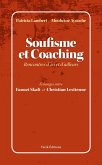Philosophy is the science of the science and therefore the analysis of the assumptions underlying empirical inquiry. Given that these assumptions cannot possibly be examined or even identified on the basis of empirical data, it follows that philosophy is a non-empirical discipline. And given that our linguistic and cultural practices cannot possibly be examined or even identified except on the basis of empirical data, it follows that philosophical questions are not linguistic questions and do not otherwise concern our conventions or our cultural practices. This entails that philosophical truths are not tautologous or otherwise trivial. It also entails that empiricism is false and, therefore, that Platonism is correct. Given a clear understanding of why Platonism is correct and of what this implies, a number of shibboleths of contemporary analytic philosophy are speedily demolished and are no less speedily replaced with independently corroborated and intuitively plausible alternatives. New answers are given to age-old questions concerning scientific explanation, causal and logical dependence, linguistic meaning, personal identity, the structure of the psyche, and the nature of personal responsibility. Existing answers to these question are thoroughly considered and duly extended, modified, or replaced. Every technical term is defined; every philosophy-specific concept is explained; and the positions defended are consistent with commonsense, so far as their being consistent with the relevant data allows them to be. Therefore, this book is intelligible to philosophically minded laymen. At the same time, it is appropriate for advanced scholars, given that it defends original viewpoints and given also that, even though it discusses old viewpoints, it does so in new ways. Because it is clearly written, it is intelligible to neophytes; but it is not an introductory text and it is not a textbook. There are two appendices: the first, a thorough exposition of the rudiments of formal logic, along with the conceptual underpinnings of that discipline; the second, a definition and analytic discussion of each technical term that occurs in the text.
Dieser Download kann aus rechtlichen Gründen nur mit Rechnungsadresse in A, B, CY, CZ, D, DK, EW, E, FIN, F, GR, H, IRL, I, LT, L, LR, M, NL, PL, P, R, S, SLO, SK ausgeliefert werden.









